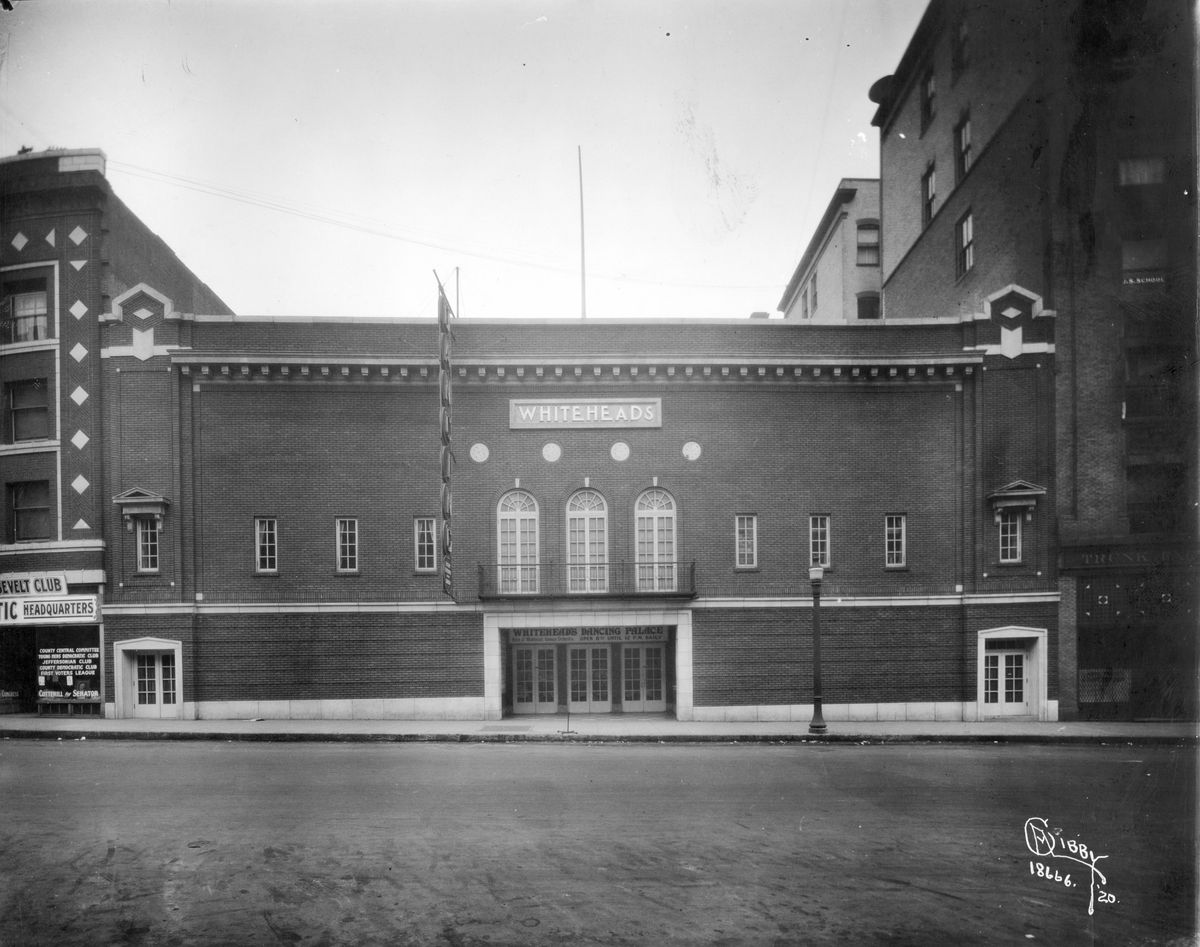Then and Now: Whitehead’s Dancing Palace

In Spokane, the 1920s roared to the music of Chuck Whitehead and his jazz band. The jazz craze was sweeping the nation, and some traditional dances were still popular.
The Charles Whitehead Jazz Band was the toast of the town when it opened at the Washington Dance Hall in 1918. So backers helped Whitehead, a drummer and vocalist, build his own place, a massive brick building with an open floor plan that could accommodate 1,200 dancers at a time with a bandstand in the middle of the floor.
Whitehead’s Dancing Palace opened on Christmas Eve 1919. With Whitehead as manager and star of the show, the place was an immediate hit. The band played songs for the waltz, foxtrot and the Charleston from 8:15 to 11:45 each evening.
A young Bing Crosby hung out there in his free time, listening to the band play the latest popular songs. One of Crosby’s college friends, banjo player Dutch Groshoff, who played in Whitehead’s band in 1923, said the dance hall bandleader was a major influence on Crosby. Ray Hendricks, Fred Hartley and Bob Crosby, Bing’s youngest brother, also got their start there.
In May 1923, famed silent film actor Rudolph Valentino performed at the Dancing Palace. Groshoff recalls that crowds mobbed the place and Valentino, a worldwide heartthrob, hid in his dressing room until the performance.
In 1924, the name of the dance hall was changed to The Garden Ballroom and another general manager took over, with Whitehead still on the stage. He was also conductor of the city’s symphony orchestra.
The building, in the 300 block of West Sprague Avenue, continued as The Garden until 1941, when it was renovated into the Garden Lanes bowling alley, and later the Civic Center Lanes. The bowling center closed in the mid-1960s and was used by Avis Rent-A-Car, Hal’s Stereo and other businesses before being turned into a parking garage.
When Whitehead died in 1949 at age 67, Groshoff told The Spokesman-Review, “Chuck was my inspiration, the same as he was to all the young musicians of his time. To us, his death means the passing of an era in Spokane music.”
– Jesse Tinsley